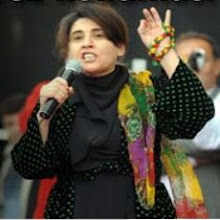
The 2003 Iraqi war has heightened Kurdish nationalism not only in Iraqi Kurdistan, but also in Turkey, Iran, and Syria. Having enjoyed 13 years of self-government in the safe haven zone, which was created and protected by the United States, the Iraqi Kurds have embarked on an ambitious campaign to consolidate their political and economic gains.
The Kurds first sought safeguards from both the Coalition Provisional Authority (CPA), led by the United States, and from the Iraqi Governing Council (IGC), and now the Interim Iraqi Government with a view to preventing the recurrence of past atrocities committed against them by successive Arab governments in Baghdad. The Kurdish campaign has faced stiff opposition from their neighbors to their demand for the creation of a federal, democratic, and secular system of government in Iraq. While the Arab opposition inside Iraq is fearful that the introduction of such a system might lead to the disintegration of the country, the neighboring countries claim that granting the Kurds greater freedom in Iraq will incite their own Kurdish populations to demand the same. This book presents a balanced analysis of the pros and cons regarding the Kurdish demands.
Amazon




